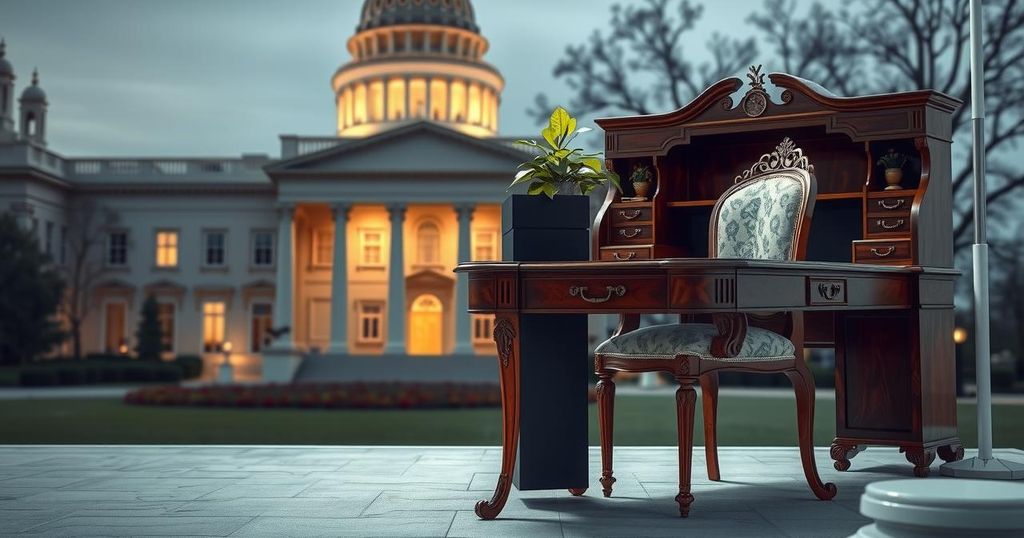Yamandú Orsi has taken office as Uruguay’s new president, recognized for his commitment to fighting poverty. His inauguration was attended by various international leaders, emphasizing Uruguay’s role as a stable democracy in a polarized region. Orsi’s presidency coincides with positive economic trends and Uruguay’s active participation in Mercosur’s free trade initiatives with the EU.
Yamandú Orsi has officially assumed the presidency of Uruguay, taking the oath of office in the national parliament. This event saw the attendance of several notable dignitaries, including Brazilian President Luiz Inácio Lula da Silva, Colombian President Gustavo Petro, Chilean President Gabriel Boric, and King Felipe VI of Spain. Additionally, German President Frank-Walter Steinmeier participated in the ceremony and engaged in diplomatic discussions with various Latin American leaders, including meeting with President Lula.
Uruguay, home to approximately 3.5 million residents, is regarded as a beacon of democracy in Latin America, a region often marred by political polarization, violence, and authoritarianism. Since the restoration of democracy four decades ago, the country has experienced a peaceful alternation of power between center-right and center-left governments. Current economic indicators reflect a favorable environment, with low inflation rates and low unemployment, alongside a rise in real wages.
As part of his five-year term, President Orsi, a former educator, committed to combating poverty. He highlighted Uruguay’s role within the South American economic alliance Mercosur, which includes Argentina, Brazil, and Paraguay. Recently, this alliance achieved a significant milestone by negotiating a free trade agreement with the European Union, further reinforcing Uruguay’s economic position in the region.
In summary, Yamandú Orsi’s inauguration as the new President of Uruguay marks a significant political transition, attended by prominent leaders from Latin America and Europe. Under his leadership, Uruguay aims to address poverty while maintaining its status as a stable democracy amidst regional challenges. The country’s recent economic achievements and participation in Mercosur further illustrate its importance on the South American stage.
Original Source: www.bluewin.ch






